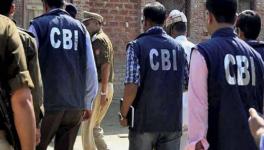Huge Frauds in Lending Sector Underscore Need to Encourage Whistleblowers
As per the annual report of Reserve Bank of India (RBI), the total cases of frauds (involving Rs 1 lakh and above) reported by banks and financial institutions (FIs) increased 28% by volume and 159% by value to a whopping Rs.1.85 lakh crore during 2019-20.
Major disconcerting facts revealed in the RBI report include: (i) the average lag in detection of frauds was a whopping 63 months for frauds of more than Rs. 100 crore, (ii) the top 50 credit-related frauds constituted 76% of the total and (iii) frauds on account of loans and advances amounted to 53% in volume but 98% by value.
The real culprit comes out as loans and advances which only mirror the financial misdemeanours of the borrower, i.e., the corporate sector. Remember the Sandesaras, Jatin Mehta, Mehul Choksi, Nirav Modi, Vijay Mallya, Singh brothers of Religare, IL&FS, Kumars of Ram Dev International, promoter/directors of Shakti Basmati Rice Pvt Ltd., just to name a few.
The latest to join the list of wilful defaulters is A C Mutiah, promoter of First Leasing company and former Chairman of MAC group of companies. Yes Bank has also initiated proceedings to categorise Jet Airways Founder, Naresh Goyal, as wilful defaulter.
Lack of accountability
Frauds have to be clearly distinguished from genuine business failures which can happen for a variety of reasons. A certain amount of the same cannot be wished away. Frauds happen only with the connivance of the bankers, the promoters/management of the borrowers and the auditors on both the sides.
The initial seeds are sown by sanctioning loans far in excess of the viability of the project which reflects poor quality of project appraisals on the part of the lenders. This is nurtured further when the lenders look the other way when rampant siphoning of funds takes place. This actually is easiest to detect given that both the inflows and outflows happen through the designated bank accounts maintained with the lenders. The designated accounts are what I call the “financial horoscope” – enough to reveal the past and the present integrity of the borrowers. A close scrutiny of the same by the bankers should enable alarm bells to ring much earlier.
Also watch: How will India Protect Its Banks from Big Corporate Defaulters?
Even if the lenders’ own scrutiny falls short of the desired levels, it is expected that a plethora of auditors; internal, concurrent, statutory, RBI auditors should catch the fraudsters. Alas, it rarely happens in the real world. No wonder then that RBI laments about the failure of the early warning system (EWS) in the banks which failed to detect these humongous frauds. But, RBI need not lose heart!
EWS is missing elsewhere too
The Satyam scam of over Rs 7,000 crore would not have come to light but for the self confession by its chairman, Ramalinga Raju. A staggering 97% of the alleged Rs 5,000 crore of bank balances were found to be fictitious. PricewaterhouseCoopers (PwC), its auditors for eight years, had failed to detect the fraud.
The Satyam scam came to light on January 8, 2009. More than 11 years after the scam, Bob Moritz, the Global Chairman of PwC is reported to have said recently that it wants to ensure that it is moving forward on the detection of fraud to ensure the relevance of the profession. Better late than never!
Bob Moritz’s statement could not have been more timely. A few days back, PwC had resigned as the statutory auditors of GVK Power and Infrastructure. The resignation came only after the Enforcement Directorate and the Central Bureau of Investigation had launched a probe against the promoters of GVK for money laundering to the tune of Rs 700 crore in connection with the running of the Mumbai airport.
Also read: Watchdog to Probe Abrupt Exit of Audit Firms from GVK Group
PwC is not alone. A spate of recent resignations by the other three members of the Big Four, i.e., Deloitte, EY and KPMG has also raised eyebrows.
Whistleblowers – the silver lining
It is as clear as daylight that the present system of fraud detection has failed miserably and for numerous reasons. Ultimately, it is the poor common man who pays. Recapitalisation of banks is done by the government using resources which could otherwise be channelised for social good. The intent of this article is only to suggest a constructive solution to check the growing menace which is endangering our society.
Whistleblowers could provide a quick and effective remedy. Importantly, they can not only help to detect the frauds but also help in their prevention in the future. A quick look at the experience in the most developed country, the United States of America, substantiates this. Notably, India is amongst the top highest whistleblowers’ tip providers to the US Securities and Exchange Commission (SEC). The SEC has a system of rewarding whistleblowers who provide it with information that leads to an enforcement action.
Since 2011, it has awarded more than US $500 million (USD) to whistleblowers (WB), which translates to a staggering Rs 3,500 crore. Whistleblower awards can range from 10% to 30% of the money collected. In some cases, individual payouts have touched US $50 million (Rs 350 crore). The payout of US $500 million had resulted in realisation of fines of US $2 billion. Much more important than this amount is the amount of frauds which would have been prevented.
Assume that the amount of the fine equals the amount of the fraud. Even taking a conservative multiple of 10, i.e, 10 frauds prevented for each detected, the value of frauds prevented swells to US $20 billion which converted into rupees would come very close to the total value of frauds of Rs 1.86 lakh crore, which was reported in the lending sector in 2019-20.
The vast majority of the players involved; be it bankers, company officials, directors, auditors are hard working, diligent and law abiding. It is only a small percentage which makes a mockery of the system but their unscrupulous acts results in frauds of lakhs of crores. Those with conscience are, however, unable to expose the wrong doers for fear of loss of jobs, ruining of their career and in some cases even threat to life.
Also read: Deloitte Advised, Managed and Covered Up IL&FS Financial Irregularities: Whistleblower
Even sharing 10% of the total penalty/fine collected can provide the necessary financial security to the whistleblower. This will more than offset the humongous waste of time and expense incurred at the cost of the tax payers by the investigative agencies. Importantly, it will also help to raise their morale, resulting in increased effectiveness. What better stimulant than appreciation for high success rate in cracking cases.
Whistle Blowers’ Protection Act
Providing financial incentive to whistle blowers alone will not suffice. Scores of whistle blowers have lost their lives for their expose. Parliament had passed the Whistle Blowers Protection Act (Act) in 2011 but it is yet to be operationalised. Further, an amendment introduced to the Act was criticised on the grounds that it dilutes protections to whistleblowers.
The government needs to implement the Act urgently with all safeguards including for those in the corporate sector. Their contribution can be of immense help to the auditors in unravelling frauds.
Wide ramifications for the society
The investigative agencies, be it the ED, CBI or SFIO (Serious Frauds Investigation Office) are generally understaffed and overworked.
Solving intricate financial frauds is like looking for a needle in haystack. By the time the investigators get into the act, much of the incriminating evidence has been destroyed and those who could spill the beans intimidated. Whistleblowers on the other hand can provide timely and accurate inputs. Besides limiting financial damage, their contributions have wide ranging ramifications.
Also read: Former Civil Servants Demand Govt Protection for RTI Activists in Odisha
Recently, the Wadhawans of Dewan Housing and Finance (DHFL) accused of money laundering running into hundreds of crore of rupees were granted bail just because the poor overworked ED could not file the charge sheet within the mandatory 60 days period. The ED has now challenged the same in the Supreme Court leading to further stress on the already overloaded judicial system.
All this could have been avoided if inputs from the whistle blowers were available to ED saving them precious time which could be used to deal effectively with the deluge of cases confronting them.
Encouraging whistle blowers will result not only in early detection and prevention of frauds but will also make a significant difference in fighting corruption, instil the fear of law in the unscrupulous, reduce the burden on judiciary and help to make a better society.
The author is a senior finance professional who has earlier worked as CFO of Tata Telecom and Pricewaterhousecoopers (India). The views are personal.
Get the latest reports & analysis with people's perspective on Protests, movements & deep analytical videos, discussions of the current affairs in your Telegram app. Subscribe to NewsClick's Telegram channel & get Real-Time updates on stories, as they get published on our website.
























